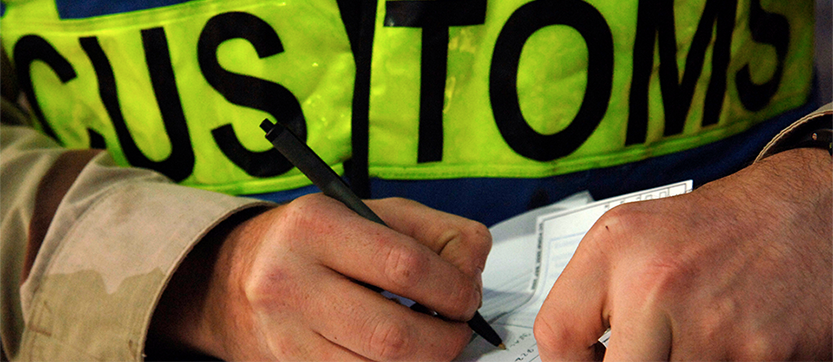Brexit will become a reality on 29 March 2019. On that date the UK will leave the European Union and its internal market, and Belgium will become a foreign border for the UK. Free trade in goods between the UK and EU member states will then no longer be possible, leading to a whole lot of additional customs formalities.
This will include among other things drawing up and submitting declarations for each import and export movement, paying and accounting for dues and other amounts, and submitting certificates of origin.
Export declarations
The General Administration of Customs & Excise has calculated that after 29 March 2019 the number of export declarations will rise by 47% (and import declarations by 14%). This will bring a whole lot of changes, especially for companies that until now only do intra-community trade (i.e. within the EU).
As soon as Brexit becomes a fact it will no longer be sufficient just to submit an invoice for consignments being sent to the UK. Instead, these goods will have to be declared by means of Paperless Customs & Excise (PLCE), an electronic export declaration that has to be submitted before the goods are allowed to leave the European customs area.
VAT
Even after Brexit it will not be necessary to charge VAT on sales of goods sent to the UK. However, in order to claim the exemption you must demonstrate formally that the goods have crossed the EU outer border. One of the most essential documents for this is copy 3 of the customs declaration.
This can be obtained from the exit customs office which confirms that your goods have actually been exported. This office will send you an electronic message so that you can print out copy 3 of the declaration.
Excise
Brexit will also bring additional procedures for the export of excise goods such as alcohol and tobacco.
As soon as the UK is no longer an EU member state, sending excise goods from Belgium to the UK will be considered as exports to a third country and no longer a movement under the terms of the excise suspension arrangement. And on top of the EMCS formalities for control of excise movements, an export declaration will have to be submitted in the PLCE system.
Conversely, after Brexit, movements of excise goods from the UK to Belgium will be considered as imports, for which the prescribed procedures must be followed. In this case also, transfer under the excise exemption arrangement can only be done as of the moment of importing to Belgium, and the EMCS rules will apply.
Certificates of origin
As part of the trade agreement, both the UK and the EU may or may not decide to draw up a protocol for certificates of origin. Whether or not you will be obliged to demonstrate the origin of your goods will depend on the terms of the protocol.
For instance, if the UK imposes import quotas or embargoes then you will have to submit non-preferential certificates of origin. These certificates are issued by the Chamber of Commerce.
On the other hand if there is a free trade agreement with more favourable import tariffs for goods of European origin then you will have to demonstrate the source of the goods using preferential certificates of origin. These are either issued by customs, or you will have to draw them up yourself.
Exclusive customs consultant
Intris has an exclusive customs consultant for its customs customers. Michel Van Giel, Honorary Regional Director of Customs & Excise, will examine the possible implications along with you and find the most advantageous formula to comply with customs regulations for trade with the UK after Brexit.

